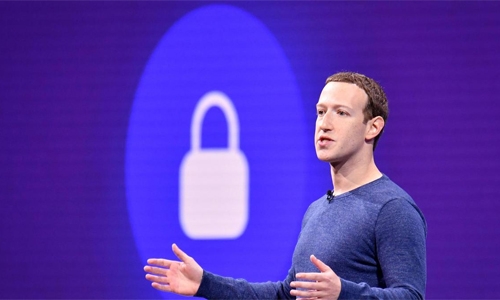Facebook’s new cryptocurrency could really change the world
There was no mention of Bitcoin in Facebook’s announcement about Libra, the company’s forthcoming digital currency, or the white paper explaining how it will work. However, it was cited in the accompanying technical documents as both a reference point and an example of what Libra will not be. Nevertheless, a debt is owed to Bitcoin’s enigmatic creator Satoshi Nakamoto, whoever he, she or they may be. The Bitcoin concept was built on the progress of digital payments. These systems date all the way back to the 1980s, but the strides made in the past decade have been truly groundbreaking. It will be interesting to see if Libra will be too.
Amid all the hype, Bitcoin has proven that there is a growing appetite for a financial system devoid of middlemen and monolithic institutions. It has also helped, via the asset bubble created around it in 2017, to heighten awareness of digital currencies and of what they can do for us. Accordingly, they are now being taken seriously by banks, governments and investors. The World Economic Forum estimates that more than 40 central banks are experimenting with blockchain technology, including digital currencies.
Facebook’s plans could trigger a digital currency arms race. Until now, the leaders had been the Ethereum platform and, potentially, China, which has been deeply involved in exploring the possibilities of cryptocurrency. However, there has been little pressure to take anything mainstream just yet. Facebook is developing not just its own currency but also the blockchain to transact it on, plus a new programming language for the development of related apps. Libra will also not just be contained to Facebook-owned platforms, such as WhatsApp or Instagram, it will also be accepted on an array of third-party apps.
Given the wide-ranging implications of these plans, others in the digital and cryptocurrency space will be forced to step up their efforts. According to Sheila Warren, head of blockchain and distributed ledger technology at the World Economic Forum, Facebook’s international brand recognition and its 2.3 billion global users will push the technology firmly into our everyday lives. Facebook has also partnered with corporate giants, including MasterCard, Visa, PayPal and Uber. It is clear that Libra is, at least initially, a US-dominated effort to create a stable digital currency.
However, along with leading Silicon Valley investors, the founding Libra Association does include a sprinkling of European members. Many questions – practical, philosophical and otherwise – remain to be answered. Foremost is how regulators will respond to a corporation attempting to mint its own coin, as opposed to a sovereign state. People such as Bernard von NotHaus, creator of the Liberty dollar, have been prosecuted in the US for similar ideas. Another blank that needs filling in is which assets will be purchased by the association, in order to back Libra.
The members of the Libra Association will control the system and are funding its development. The aim is to decentralise Libra in five years’ time, so that, like Bitcoin, no one controls the blockchain running it. Facebook also hopes that its system – unlike Bitcoin – will be less energy-intensive, and faster and cheaper to use. There is much altruistic emphasis in the Libra mission statement, but make no mistake, there is also an overarching self-interest. That is not a judgement of Facebook or its partners and it does not change what Libra could bring to the world.
It is, however, important to bear that fact in mind. For example, Facebook relies on advertising for almost all of its revenue. Given the current scepticism around the platform and big tech in general, this is a precarious position for the business. Branching out into payments and FinTech is a smart move for Facebook. In the first quarter of this year, China’s Tencent tech conglomerate earned more than $3 billion from its FinTech unit, which includes the mobile payments service WeChat, and has shown 44-per-cent growth, year on year.
As all of the issues surrounding Facebook’s entrance into the financial sphere are chewed over in the coming months, and as we learn more about Libra, ahead of its 2020 launch, the real winner will hopefully be the consumer – but perhaps not in the way the company intends. Now that Facebook has raised them so prominently, people are likely to become more aware of the realities and shortcomings of the broader financial system.
With this knowledge, they will be better able to choose wisely when it comes to how they manage their money, taking into account a variety of factors, including cost, privacy and ease of use. Institutions and governments will need to deliver much higher levels of service and transparency, in order to meet these new standards. If they don’t, it won’t just be Facebook that is eager to get in on the digital currency revolution.
Related Posts

